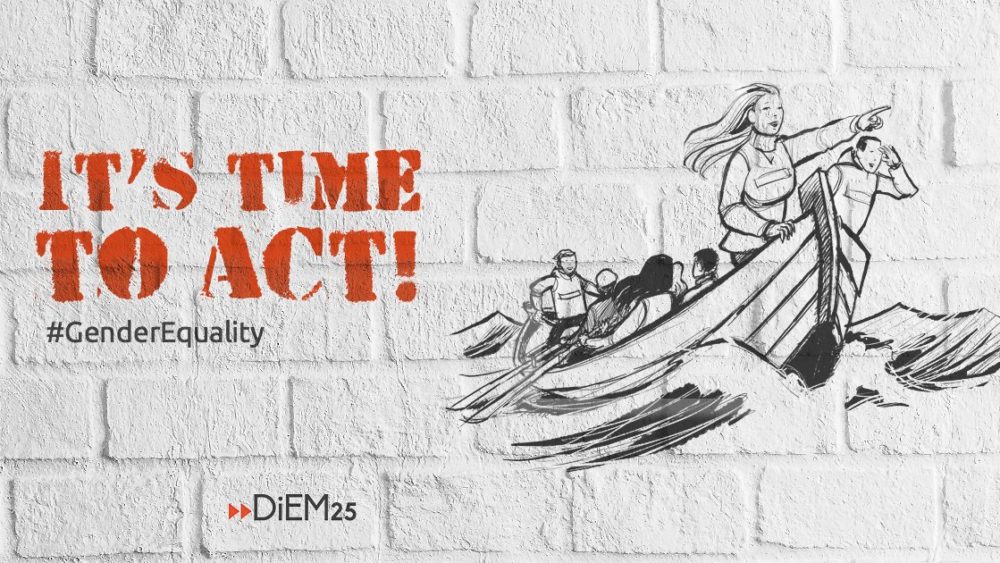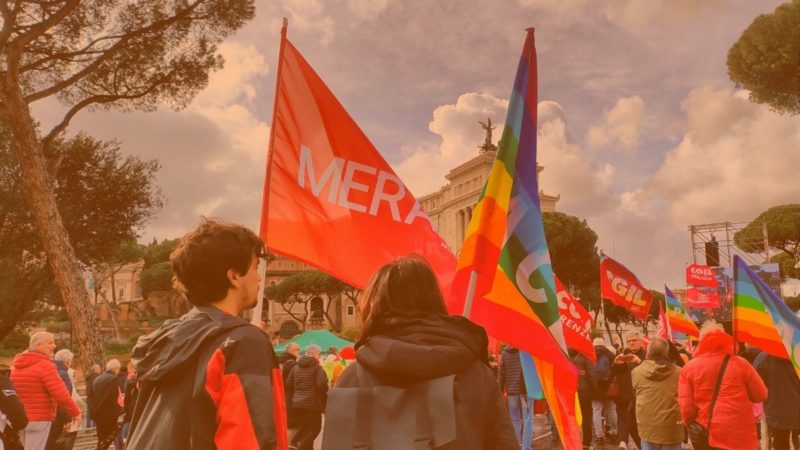I look forward to the day when the date 8 March evokes nothing but memories among mostly older people. I hope that may shock you!
Because it shouldn’t. If my wish were to come true, it would mean that a special day on the calendar for women is somehow bizarre, as if we celebrated “Men’s Day”. Let’s remember first that not everyone stresses that the formal title of this day is International Day for the Rights of Women. To start with, women everywhere ought to have the same rights as men. Both sexes should recognise that the struggle for rights is never-ending and that those they have won can be stripped away in short order when vigilance falters.
I dream of 8 March becoming ordinary because women’s rights would then be at least equal to those of men. I would also like to see Gay Pride marches abandoned as outdated—as strange as organising marches to celebrate Heterosexual Pride with imaginative floats and costumes. But we need both Women’s rights and gay, black, immigrant… rights now because the fight to be Simply Ordinary, a fact of life, is far from won.
Today, we must keep and celebrate special days, with marches and slogans, in order to keep injustice in the spotlight. Martin Luther King Day is a relatively new national holiday in the US and rightfully puts the fearless Dr King at the same level as the greatest American Presidents, an honour richly deserved. He was murdered for his convictions and because of everything he did for black people now also known as “people of colour”. Whatever they’re called, they should be just plain “people” because they are humans with the same dignity and deserving of the same rights as any other humans.
Columbus Day is a more problematic US holiday. In primary school, we learned that Christopher Columbus had “discovered America”, full stop. He knew the earth was round and thought he’d get to Asia, thus opening up huge commercial possibilities. The voyage was meant to be about commerce and trade, that is, money. No one suggested that our view of the explorer was decidedly short-sighted. Because didn’t reach Asia and stumbled on unknown territory, Columbus should have been known as the forerunner of innumerable colonisers. So it’s good to learn that in the United States, since 1977, more and more towns celebrate “Indigenous Peoples’ Day” instead. Not enough, of course, to compensate for all the Indigenous Peoples, including Native Americans, killed as we colonised but an improvement on “Columbus Day”.
But back to March 8. In France where I’ve lived all my adult life, a woman is the victim of rape or intended rape every 8 minutes. Almost none of their aggressors are caught and condemned to prison. Every three days a woman is killed by her male companion [or ex]. Economically speaking the story is no better: economic activities in which women predominate are the worst-paid, not including housework which isn’t paid at all. Women’s retirement resources are on average only 40 percent those of men. “Equal pay for equal work” is a fantasy: women average 25 percent less than men. Most part-time work—by choice or necessity—is allotted to women and for single-parent families, you can guess who is the single parent nine times out of ten.
Let’s now make a quantum leap. It’s 2035, not that far off, and we’re looking back. It’s clear that all this was obviously, blatantly unjust. Fortunately, all these evils have gone the way of the barbarians who sent debtors to prison and little children to work in the mines. The 8th of March our mothers and grandmothers celebrated and fought for has gone the way of the suffragettes and the times when abortion was outlawed and contraceptives hard to obtain. We have necessary, normal laws now. Companies today would never get away with paying their female workers worse than the male ones and rapists are dealt with speedily in the criminal courts with the full force of the law.
Now we can look back and be thankful that women are promoted and chosen for various roles based entirely on their qualifications, with no reference to gender. There once was a time, even in the nascent movement of men trying to be feminists, when some of them asked you to join and speak at their events and candidly informed you “And we need a woman”. They were well-meaning, but women who wanted to be chosen on their merits had to reply, “Then it won’t be me”.
Today, thanks to an outpouring of long-hidden suffering, feelings of guilt, shame and rage that began in 2017-18, we can look back at the time when victims of sexual harassment, even rape were afraid or ashamed to speak out. We know now that we are listened to, believed and that men think more than twice about engaging in such activities since they could lose their jobs and their status. Little remembered today, the powerful film producer Harvey Weinstein, target of some of the first truth-tellers was obliged to declare his company’s bankruptcy a few short months after the first female voices were raised against him. Few men today care to join him…
Naturally we in Europe are still far ahead of women in many other parts of the world, but there too some barriers are falling. The movement is truly world-wide and is growing stronger every year.
Let me conclude this brief escape into the future. I hope it’s clear now why I would welcome the obsolescence of any special celebration of 8 March, unless it is in memory of… so many efforts, so many struggles. I prefer to believe that women will bring about many, many social, cultural, economic and legal changes. That throughout the world, they can be fighters and that men, most men will fight with them. I like to think that the police, the courts, the lawmakers, all the authorities and society in general will consider crimes and discrimination against women as serious as all the other crimes on the statute books and that no woman will ever again be exposed to retorsion, ridicule or fear because she demands justice. I want to believe that women today living in cultures which demand their subservience will gain their freedom.
Let us celebrate 8 March both as a day marking considerable progress this year, but also as a special day destined to disappear because we will continue to fight, everywhere, whatever the odds against us, until we attain genuine equality, respect and dignity.
Susan George is president of the board of the Transnational Institute and a member of DiEM25’s Advisory Panel.
Do you want to be informed of DiEM25's actions? Sign up here




